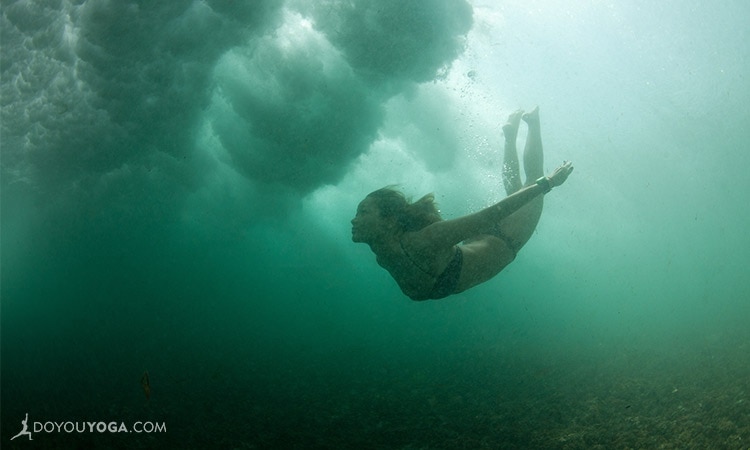Scuba diving once had a reputation as a daring sport that no tranquil yoga-type would likely find appealing. But like most stereotypes, this couldn’t be further from the truth. Yoga and scuba diving actually have a lot in common, and these activities build skills that complement each other, making you better at both.
If you already dive, yoga will improve your technique. And if you’re a yoga junkie, you’re sure to love diving. Yoga and scuba challenge you to push your boundaries and step out of your comfort zone, which is just one reason why they’re such a perfect pair.
Focusing on the Breath
Scuba diving has one cardinal rule that may sound familiar to many yogis: always remember to breathe.
Pranayama, or yoga breathing exercises,connects the body with the spirit, teaching control over your mental and physical state through breathing techniques. When you take long, deep breaths during yoga practice, you’re building skills that will help keep you safe underwater.
Yogis, how often does your teacher remind you not to hold your breath in a strenuous pose? This is a great reminder for scuba divers, as well. Instinct tells us to hold our breath during physical exertion, especially under water. But when you forget to breathe evenly, and especially if you hold your breath, you put yourself at risk for overexpansion injuries.
Breathing Is A Skill
Overexpansion injuries happen because of changes in the surrounding pressure when you dive. As you move deeper, the air in your body compresses because of the added pressure of the water around you.
As you approach the surface, that compressed air expands again. If it has nowhere to go—as happens when you hold your breath—the expanding air can injure your lungs, ears, and sinuses. Continuous breathing is a skill every diver needs.
Breathing like a yogi also helps you use oxygen more efficiently, so you’ll tire less easily and use less air underwater. This is great news for divers: good breath control is the key to a great dive, and lower air consumption often means more bottom time.
The Meditative Mind—Above and Below Water
If you ask a diver and a yogi why they love what they do, their answers will probably sound pretty similar.
Yoga and scuba diving both produce a sense of tranquility that’s like a vacation from the stresses of ordinary life. Both can create a meditative state of mind that allows you to live fully in the present moment.
When I dive, my mind goes quiet so I can enjoy the natural world and the sensation of soaring above the sea floor. Even on land, diving can act like a shortcut to the meditative mind.
If I’m feeling distracted during a yoga session, recalling the physical sensations I experienced on a dive draws my consciousness back to my body and the present moment, allowing me to more easily slip into the meditative mind.
Diving, like yoga, is a special experience that can only take place in present tense, and practicing yoga and scuba together can make you better at both. With so many core similarities, yoga and scuba diving truly are the perfect complement to one another.


